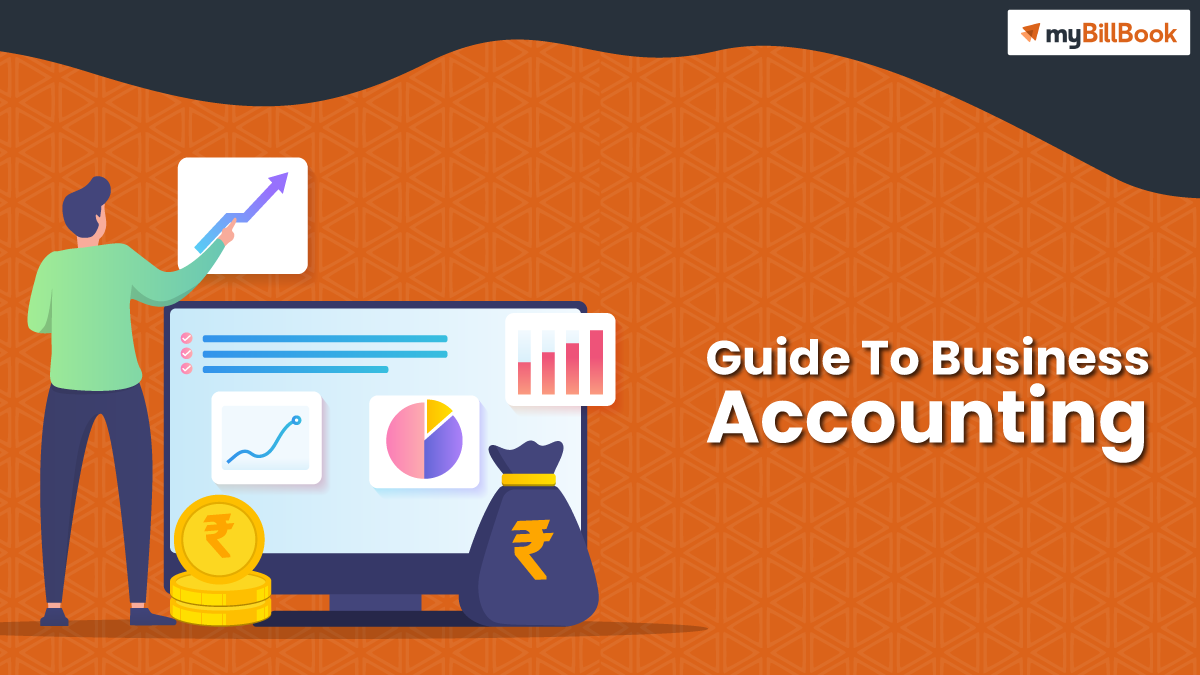Business accounting is an organized system for recording, analyzing, interpreting, and presenting financial information. There are three basic activities in business accounting which are identifying, recording, and commutating economic actions like transactions and investments.
Business accounting is the best way to track the operations of a business. It is the job of an accountant to record every transaction in accounting. Accounting has many benefits for any kind of business regardless of the size of the organization. A business financial statement is useful for both internal and external users. They can easily gauge the status of the company by checking the accounting statements.
Why Business Accounting is Important
Every business needs business accounting to run a business successfully. It helps in tracking both income and expenditure and guarantee statutory compliance. Moreover, business accounting can provide quantitative financial information to investors, management, and the government to make business decisions. A few points mentioned below can make you understand why exactly business accounting is important.
- Business Accounting helps in evaluating the performance of a business
The financial record of an organization depicts the result of operations and the financial position of the company. The information recorded in business accounting will not only give you an idea of updated records but also helps in tracking expenses, gross margin, and all possible debt. You can also compare the current data with the previous records to apportion your budget aptly.
- It can ensure statutory compliance
Let it be any state or country, accounting system and methods help to ensure statutory compliance in any kind of business.
- It helps in creating a budget and future projections
To understand how to create a budget and plan for future projects, financial records can play a very essential role.
- Business accounting can benefit from filing financial statements
Every business must file financial statements with the Registrar of Companies. Accounting has a great role in filing the financial statement accurately.
Chief terms of business accounting
There are about 15 terms in business accounting that you must know since these are the foundation of business accounting. Sometimes, these terms may not be needed at the moment for your business. But later if you want to expand or grow your business, then you will surely need to know these terms.
- Accounts Receivable and Accounts Payable
The cash people owe you for goods or services is considered accounts receivable. Accounts receivable are recorded as an asset on your balance sheet. Whereas accounts payable is the money that you owe to other people. Accounts payable is recorded as a liability in the balance sheet.
- Accruals
These are both credits and debits recorded but have not yet been satisfied. For example, accruals can be any sales or purchases you have made but have not yet received or made the payment.
- Assets
Both tangible and intangible thing a company owns is known as assets. It can be cash, tools, property, copyrights, patents, and trademarks.
- Liabilities
Anything that your company owes during both the long run and short run is known as liabilities. It can be payroll, taxes, loans, credit card balance, etc.
- Capital
The money you invest or spend to start or grow your business is called Capital. It is also known by the name Working Capital. For example cash in the bank.
- Costs of Goods Sold
It is the cost of manufacturing your products or even the cost of delivering your service. COGS or cost of goods sold is also identified by the term cost of sales.
- Burn Rate
It is the rate at which your business spends money within a particular period.
- Depreciation
Depreciation denotes the decrease in the value of your assets over time. It is the process of allocating the cost of a tangible asset over its useful life.
- Equity
The amount of cash invested in a business by its owner is known as equity. It is also known by the name “Owner’s Equity”. Equity can be things of monetary value like time, energy, and many other resources.
- Expenses
Any cash you spend to generate revenue is known as Expenses. It can also be called the cost of doing business. There are four types of expenses such as fixed expenses, variable expenses, accrued expenses, and operating expenses.
- Fiscal Year
The period used for accounting by an organization is known as the fiscal year. Some companies go with the calendar year and some may be based on the preparation of financial statements by an accountant.
- GAAP
The full form of GAAP is Generally Accepted Accounting Principles which are broadly accepted guidelines for accounting and financial reporting.
- Profit
Profit is the financial gain of a company, which means it is the difference between the amount earned and the amount spent running your business.
- Revenue
The whole amount of money you gather in exchange for your good and services before any expenses are taken is known as revenue.
- Gross Margin
Gross Margin, also known as Gross Income is the number of total sales deducted by your cost of goods sold.
Steps involved in business accounting for small business
Once you have completed the process of launching your business, registration and getting a tax id, you should do a few other things to keep your business professional and successful. Here are a few steps involved in business accounting for small businesses.
- Open a bank account
It is important to open a bank account in the name of your business. All the transactions that you make on behalf of the organization should be done through this bank account.
- Apply for a business credit card
If you have a business credit card, you can use it for large purchases that you make which is a very convenient way to run the business.
- Select the accounting software
Various types of accounting software are available these days and you can choose the best one that suits your business. Quick Books is one such accounting software that is continuously adding more features and upgrading its competencies to make business accounting simpler and perfect.
- Set up payroll
If your company has employees, you must set up payroll to give salary in the right way. Any full-time or part-time employees that you recruit will need a W-2 form and for the freelancers and independent contracts, you need to have W- 9 form.
- Arrange the payment method
Accepting payment for your good and services should involve as many payment methods as possible. Because some people might give you a cheque, some may give cash or transfer money through a bank. So you must be well prepared for all the scenarios.
- Understand your tax obligations
Any organization should pay tax quarterly both federal and state taxes. Taxes will increases when your income increases and if you do not update estimates when your income increases, there are high chances you will be left with a debt. Make sure that you charge your customer the right amount of sales tax.
Conclusion
Hope this accounting business guide has given you detailed information regarding how you can manage your business without making any slip-ups. If you appropriately do things, you will never have to face any issues which will make your business run productively. Keep in mind that business and accounting should be done truthfully.








